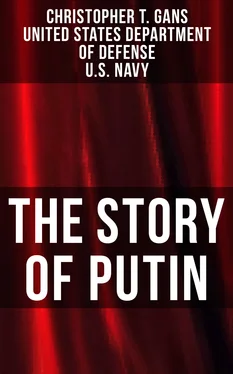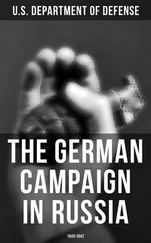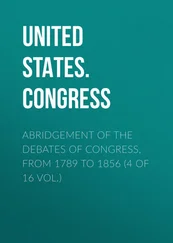As the USSR dissolved, Boris Yeltsin took the reins of the Russian Federation, the largest country on the globe, and the most powerful of the post-Soviet successor states. Many in the West harbored dreams that Russia would transform into a democracy on the Western model and adopt foreign policies compatible with the current Western democratic states. When Putin came to the forefront in 1999, many hoped he, too, would continue down a path toward liberalization; it was not to be. Putin has steered the Russian political system’s development closer toward an authoritarian model, but not a total one; Russia has become what many in the broader literature refer to as a “hybrid,” or “electoral authoritarian,” or “competitive authoritarian” regime. 1Since the spread of Western democracy stagnated beyond former Soviet Eastern Europe in the 1990s, hybrid regimes that combine aspects of authoritarianism and institutional democracy have become ever-more commonplace as a result of what some call a “democratic rollback.” 2
Putin must operate in a hybrid authoritarian political system in which actors within the state maintain degrees of political leverage over their government and leader. An understanding of such a system, therefore, shall be necessary to gauge any domestic political implications and potential benefits of Putin’s anti-Americanism. By better understanding Putin’s political situation within his state and the potential political benefits accrued by Putin for anti-American rhetoric and policy, Western entities might be better able to interact with Putin rather than discounting his actions as only the whims of a Russian strong-man.
1Nikolai Petrov, Masha Lipman, and Henry Hale, “Overmanaged Democracy in Russia: Governance Implications of Hybrid Regimes,” Carnegie Papers , no 106 (February 2010): 1; Grigorii Golosov, “The Regional Roots of Electoral Authoritarianism in Russia,” Europe-Asia Studies 63, no. 4 (June 2011): 623; Timothy Colton and Henry Hale, “The Putin Vote: Presidential Electorates in a Hybrid Regime,” Slavic Review 68, no. 3 (Fall 2009): 503.
2Larry Diamond, “The Democratic Rollback: The Resurgence of the Predatory State,” in Essential Readings in Comparative Politics , 3 rded., eds Patrick O’Neil and Ronald Rogowski (New York: W. W. Norton and Company, 2010), 235.
Table of Contents
One major issue investigated in this thesis is the connection between Vladimir Putin’s anti-Americanism and the anti-Americanism of the Russian population. That population includes the general public and Putinist elites. The thesis shall also attempt to gauge the domestic political benefits garnered by Putin’s anti-Americanism within the authoritarian system that he has created.
Peter Katzenstein and Robert Keohane define anti-Americanism as a “psychological tendency to hold negative views of the United States and of American society in general…an attitude.” 1Ivan Krastev comes to a similar definition: “anti-Americanism is a systemic opposition to America as a whole. It is a critique of the United States that transcends mere disagreement over specific policy questions or government decisions.” 2Anti-Americanism, therefore, cannot be reduced to an isolated incident of criticism or opposition to a single U.S. policy or action. An extended pattern of animosity in rhetoric and actions must be observable.
Regarding Vladimir Putin, it is hypothesized that the roots of his anti-Americanism long pre-date his rise to power. His anti-Americanism fits the Katzenstein/Keohane narrative of a psychological animosity toward America independent of reactions to the circumstances of any one instance in time. Putin did not suddenly become anti-American due to the Iraq War, a falling-out with George W. Bush, or long-term trends in American foreign policy deemed antagonistic to Russia; he has always been anti-American at heart, and the aforementioned issues simply exacerbated a cognitive condition that already existed. He possesses a “cognitive predisposition,” as Robert Jervis would say. Putin’s negative perceptions of America became engrained in his psyche during the Cold War, only to remain long past the collapse of the Soviet state. 3
A second hypothesis is that Vladimir Putin, though not responsible for seeding an anti-American psyche within his populace, has utilized the means inherently available within his authoritarian system to effectively fan the flames. Such means include media manipulation, exploitation of public fears of instability, and overtly discrediting anything American/Western. Many people in Russia are or have been inherently hostile toward the United States for decades. It is further hypothesized, nevertheless, that any widespread anti-Americanism within the Russian populace, as portrayed in decades of polling data, is directly related to increases in the Putinist regime’s anti-American vehemence. Putinist anti-Americanism when projected from the hierarchy of authoritarian power, therefore, positively influences public anti-Americanism. In light of the aforementioned definitions of anti-Americanism, gauging the level of Putin/Kremlin anti-Americanism over time will not be based on any one single-incident example of anti-Americanism, but rather longer-term trends in regime rhetoric and policy actions. A series of anti-American speeches or confrontational policy actions turns what appeared at the time to be an isolated example of anti-Americanism into a noticeable trend.
It is further hypothesized that Putin’s and his nation’s anti-Americanism has become self-perpetuating. Putin’s anti-Americanism can be seen as in-line with the antiAmerican popular consensus which his machine has manipulated. This thereby garners significant domestic political benefit for Putin within his hybrid-authoritarian system. Putin’s anti-Americanism drives public anti-Americanism which further feeds Putin’s anti-Americanism; a feedback loop has developed. The thesis, thereby, also hypothesizes that though easy to discount as the whims of a paranoid man, Vladimir Putin’s rhetoric and policy stances toward the United States remains pragmatic in light of the domestic political situation that he created for himself. Regardless of the number of “resets” in Russian-American relations, Putinist Russia will continue to breathe a degree of surliness toward the United States and West.
1Peter Katzenstein and Robert Keohane, Anti-Americanism in World Politics (Ithaca, NY: Cornell University Press, 2007), 12.
2Ivan Krastev, “The Anti-American Century,” Journal of Democracy 15, no 2 (April 2004): 7.
3Robert Jervis, Perception and Misperception in International Politics (Princeton, NJ: Princeton University Press, 1976), 239.
Table of Contents
Anti-Americanism in Russia, whether emanating from the Kremlin or other segments of the populace, has influenced Russian-American relations during the ongoing era of Vladimir Putin. Anti-Americanism, however, was not new to Russia with Putin’s ascension to power on December 31, 1999. It has existed around the globe and among the world populace as well as within Russian politicians, elites, and the public for some time. Global anti-Americanism in the 1990s, according to Fouad Ajami, was much more rampant than many casually observed, and that post 9/11 sympathies for the United States were barely skin-deep and completely temporary. Historical hatred of America, thereby, cannot be supplanted but only temporarily hidden. 1A lingering product of Soviet times, Russian anti-Americanism in the 1990s under then President Yeltsin, therefore, simply laid dormant, waiting to resurface, which it did during the Balkan crises of the later 1990s, followed by resurgent global anti-Americanism after the 2003 Iraq invasion. 2
Читать дальше












